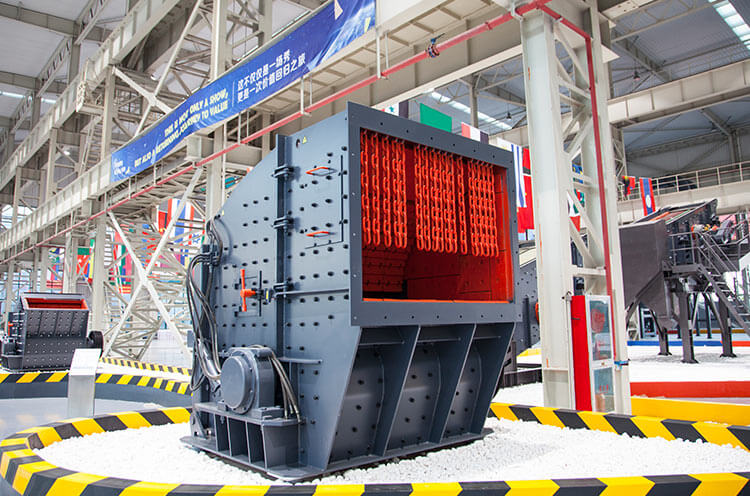
Are you struggling with low efficiency in your impact crusher? In this article, we'll delve deep into the core principles of CI5X heavy-duty rotor design. From mass distribution to rotational inertia and the scientific matching of impact kinetic energy, you'll learn how to precisely adjust the rotational speed and hammer layout according to ore hardness, particle size, and production capacity requirements.
The structure of the rotor plays a crucial role in determining the crushing efficiency of an impact crusher. A well - designed rotor can significantly enhance the overall performance of the equipment. For example, a rotor with an optimized mass distribution can generate more stable and powerful impact forces during rotation.
Let's analyze the engineering logic between mass distribution and rotational inertia. Rotational inertia is directly related to the mass distribution of the rotor. A balanced mass distribution can ensure a smooth rotation, reducing unnecessary vibrations and energy losses. When the mass is evenly distributed, the rotor can maintain a more consistent rotational speed, which is essential for efficient crushing.

Impact kinetic energy is a key factor in the crushing process. Different ore conditions require different strategies for using impact kinetic energy. For soft ores, a relatively lower impact kinetic energy may be sufficient to achieve the desired crushing effect. However, for hard ores, a higher impact kinetic energy is needed.
Here are some suggestions for rotational speed and hammer configuration based on different ore types and particle sizes:
| Ore Type | Particle Size | Rotational Speed | Hammer Configuration |
|---|---|---|---|
| Soft Ore | Coarse | Relatively low | Fewer hammers |
| Soft Ore | Fine | Moderate | More hammers |
| Medium Ore | Coarse | Moderate | Appropriate number of hammers |
| Medium Ore | Fine | Relatively high | More hammers |
| Hard Ore | Coarse | High | More hammers with high - strength material |
| Hard Ore | Fine | Very high | More hammers with high - strength material |
There are some typical mistakes in rotor operation that can lead to停机. For example, rotor imbalance or uneven wear can cause the equipment to stop working. One common mistake is not checking the rotor balance regularly. When the rotor is out of balance, it can cause excessive vibrations, which may damage the bearings and other components of the crusher.
To deal with these issues, we introduce the dynamic balance test method as a daily maintenance skill. By performing dynamic balance tests regularly, you can detect and correct rotor imbalance in time. We also provide a downloadable rotor status self - inspection checklist PDF. Click here to download the checklist.
Customer Case: A mining company was facing frequent downtime due to rotor problems. After adopting our suggestions on rotor parameter optimization and maintenance, they reduced their downtime by 30% and increased their crushing efficiency by 20%, achieving significant energy savings and cost reduction.
By understanding the core principles of CI5X heavy - duty rotor design and optimizing the rotor parameters, you can significantly improve the crushing efficiency of your impact crusher. You can achieve high - efficiency crushing, energy saving, and reduce downtime and maintenance costs. Choose CI5X, and let every ton of ore create higher value.